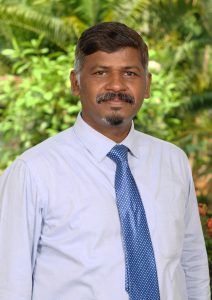The College Library was founded in 1863, just a year after Rev Dr Miller arrived. This facility was upgraded in 1869, and it contained dictionaries, atlases, commentaries, and books of reference in every branch of knowledge. This was open for the college students one hour before the commencement of classes and two hours after the classes ended. In 1870, about 200 students had free access to the General Library; over a thousand books were borrowed in a year. It was so efficiently managed that not a single volume was f̋ound missing. In 1871, Mrs Margaret Gunn of Latheron, Scotland, endowed the Library with a sum of £1000 in memory of her husband Donald Gunn, who died in 1869. The interest of this sum was made available for the maintenance of the Library. The Hunter Commission on Education in 1882 greatly commended the richness of the Library, along with that of the Presidency College.
The system of Class Libraries was introduced in 1886, pertaining to the Departments of Mathematics, Physical Science, Natural Science and Mental and Moral Science. There were more than 100 volumes in each of these class libraries. Rev Dr Miller had a fine library he donated to the college. With a gift of books from Messrs Blackie & Co., special class libraries were introduced, along with an exclusive one for PG students. Interestingly, Professors acted as Librarians in turn. Professor Laidlaw, as the Librarian in 1892, printed the catalogue; Professor Kellett, in the following year, procured several volumes as gifts from prestigious publishing houses and individuals, which included the Cambridge University Press, the Clarendon Press; Professor Max Muller donated a splendid new edition of his commentary of Rig Veda.
A reading room where more magazines and periodicals were placed was opened in 1896. For the first time, a full-time official—the Assistant Librarian—P.Rama Aiyar was appointed in 1904. The library for the institution’s school was bifurcated with 800 volumes in the year 1909, and until then, the library was also used by higher-class students. With the introduction of Honours courses in 1911, there were many significant changes, including opening the Library at night between 7 and 9 pm. The Library facilities gradually increased, and by 1920, more than 7200 volumes were stacked in the General Library.



